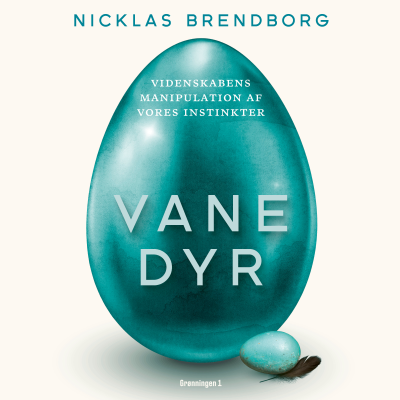
THE CRYPTO PONZI SCHEME AVENGER
Podcast af DANNY : DE HEK
This isn’t just a PODCAST —it’s a battlefield. I’m Danny de Hek, The Crypto Ponzi Scheme Avenger, and I’ve made it my mission to disrupt, expose, and shame the criminals running Ponzi schemes and multilevel marketing scams. I crash their Zoom meetings, call them out in real-time, and livestream the chaos. I don’t just talk about these fraudsters—I confront them head-on, with hate mail, threats, and lawsuits as proof of my impact.I stand up for those who can’t. Though I’ve never invested in a Ponzi scheme, I risk everything to fight for victims who’ve lost it all. My team of Avengers builds databases naming and shaming scammers, sharing them with authorities to bring these criminals to light. We do the investigations governments can’t—or won’t—do, often crossing the line to deliver justice.This channel is a rallying cry for justice. Join the fight, become an Avenger, and help take down these predators. Got a lead? Contact me via WhatsApp: https://wa.me/+6421961652
Prøv gratis i 60 dage
99,00 kr. / måned efter prøveperiode.Ingen binding.
Alle episoder
169 episoderLunaOne [https://web.archive.org/web/20220303161412/http://lunaone.com] promised the moon—and delivered dust. Now, a rebranded company called FourthStar [https://www.fourthstar.com/] claims it has bought the “intellectual property” from LunaOne and wants to start fresh, while distancing itself from the failed crypto metaverse scheme that allegedly scammed thousands. But the crypto community isn’t buying the redemption arc, especially when the new players admit they’ve inherited the tech—along with some of the same faces and stories. The Rise and Fall of LunaOne LunaOne, a flashy metaverse crypto project, lured in more than 11,000 investors with slick marketing, paid influencer promotions, and bogus claims of brand partnerships. Investors like Cindy and Ann were told that buying in early meant big rewards: pre-sale tokens offered at $0.15 were supposed to launch at $0.25. But when launch day arrived, tokens debuted at just $0.05—and the platform fell silent. Some investors didn’t even receive their tokens until after the crash. Others reported never receiving them at all. Promised partnerships with Coca-Cola, Xbox, and PlayStation turned out to be smoke and mirrors. Discords were silenced, admins were paid in tokens to suppress criticism, and investors who asked questions were kicked out. False Promises and Delayed Tokens The core deception lay in the tokenomics. Buyers were promised a controlled launch at $0.25—yet what happened was the exact opposite. Many received nothing. Others were air-dropped tokens too late to salvage any value. The leadership, including Stephen McCullah [https://www.dehek.com/tag/stephen-mccullah/] and Daniel Puzny [https://www.dehek.com/tag/daniel-puzny/], disappeared from the project. Puzny, allegedly stepping down for “health reasons,” went on to launch a suspiciously similar project called NuUReal. McCullah, meanwhile, is the man who once raised money on Kickstarter to hunt dinosaurs in the Congo. Yes, really. Who’s Really Behind LunaOne—and Now FourthStar? Documents and interviews reveal that McCullah was always the true architect of LunaOne. The front-facing CEO, Daniel Puzny, was little more than a placeholder. McCullah’s name appears on legal documents, company registrations, and apology letters to the LunaOne community. FourthStar’s current team includes Craig Wilshere, a developer who was contracted by LunaOne and never paid, according to insiders. John Seia, an Australian investor-turned-contributor, reached out to Danny de Hek in a phone call (recorded and published with this blog), claiming he lost $40,000 of his own money and is now helping FourthStar voluntarily. His words: > “I’m just a pleb trying to make something good out of the ashes.” Misleading Marketing & Red Flags LunaOne mastered the playbook of crypto hype: fake brand endorsements, influencer-driven sales funnels, staged AMA calls, and vague promises of “world-changing tech.” They convinced the average person to part with thousands using “starter packages” and gamified staking options. Meanwhile, The Run Guys—crypto influencers with huge followings—endorsed the project for months, even meeting with McCullah before launch. They later scrubbed their YouTube channel and released a non-apology. READ MORE >> [https://www.dehek.com/general/ponzi-scheme-scamalerts/fourthstar-buys-lunaone-scam-assets-offers-worthless-tokens-in-bid-to-win-back-the-crypto-community/] Buy Me a Coffee [https://www.buymeacoffee.com/dehek] I’m on @buymeacoffee. If you like my work, you can buy me a coffee and share your thoughts. Support the show [https://www.buymeacoffee.com/dehek]
I’ve spent countless hours uncovering Ponzi schemes and helping victims understand the true nature of these scams. My goal has always been to empower people, helping them avoid losing their hard-earned money. However, my recent experience with an individual I’ll call Ethan Graves (a pseudonym) and his associate, representing companies based in Austria and elsewhere, opened my eyes to a concerning aspect of the recovery services industry. This is my account, my observations, and my opinion, shared to provide cautionary insight to others. The Podcast That Raised Red Flags Ethan Graves and I recorded the podcast in one of the meeting rooms at the Global Financial Crime Summit 2024. The discussion centered on the event itself—how insightful the sessions were, the innovative strategies shared by experts, and the importance of global collaboration in fighting financial crime. Ethan brought a cameraman to document the podcast, which seemed like a straightforward way to capture and share the moment. After the podcast, Ethan posted photos and videos on social media, including images of himself standing at a podium with the summit’s signage prominently displayed in the background. To someone unfamiliar with the situation, these posts might give the impression that Ethan was closely affiliated with the summit or had an official role as a delegate or speaker. In reality, Ethan’s only connection to the event was being invited to record the podcast in the venue. While the posts didn’t explicitly claim he was part of the summit, in my opinion, the way they were presented could mislead people into believing Ethan was more involved than he actually was. At first, I thought little of it, assuming Ethan was simply proud of being associated with such an important event. However, things began to shift after the podcast aired. A week after I returned home, I started receiving emails from people who had seen the podcast. Many of these messages were supportive, but a significant number raised serious concerns about Ethan. Several individuals claimed he was a scammer, warning me to be cautious. Others shared documents that painted a troubling picture of his professional activities. These emails stopped me in my tracks. Until then, I had seen Ethan as a fellow advocate for scam victims—someone committed to helping those who had been defrauded. But the allegations and evidence I was receiving suggested a different story. The documents I received included: * Contracts and agreements related to recovery services that raised questions about transparency and fairness. * Complaints from individuals who claimed they had paid fees upfront but had seen no progress or results. * Information suggesting that Ethan’s professional partner and their organization were more focused on collecting fees than on delivering real outcomes. What had started as an impromptu podcast to highlight the value of the summit quickly backfired on Ethan. Instead of boosting his credibility, it prompted people to come forward with concerns and evidence that cast doubt on his intentions. Returning Home: The Proposal That Changed Everything Shortly after I returned to New Zealand, Ethan reached out with a proposal that changed my perspective entirely. He explained that he had been discussing with his professional partner at their organisation the idea of pursuing a recovery initiative for victims of Ponzi schemes, particularly HyperVerse. They wanted me to direct victims to their services and, in return, offered to pay me a flat-rate fee Buy Me a Coffee [https://www.buymeacoffee.com/dehek] I’m on @buymeacoffee. If you like my work, you can buy me a coffee and share your thoughts. Support the show [https://www.buymeacoffee.com/dehek]
In this episode, The Crypto Ponzi Scheme Avenger—Danny de Hek—dives deep into Megan Lynch’s latest attempt at gaslighting her audience into believing the VYB scheme is anything but another shady MLM scam. If you’ve ever wondered how scammers manipulate people into staying loyal to a sinking ship, this is the episode for you! Megan’s video is a psychological rollercoaster, packed with blame-shifting, emotional manipulation, and classic cult-like MLM tactics designed to keep people trapped in the illusion of financial success. She categorises people into "quitters," "players," "workers," and "studs," making it clear that if you question the business model or fail to recruit others, you’re just a weak-minded loser who doesn't "want it bad enough." But let’s be real—this is not about mindset or hard work. This is about a system that benefits the people at the top while everyone else fights for scraps. The red flags are everywhere: 🚩 Demonizing anyone who questions the scheme 🚩 Encouraging blind loyalty to leaders 🚩 Focusing on recruitment over actual product sales 🚩 Guilt-tripping participants for not working 24/7 🚩 Selling a dream that only works for the few at the top VYB’s so-called "business opportunity" is crumbling, and instead of taking responsibility, Megan is spinning an elaborate web of excuses to keep people locked in. The irony? She warns about people who “stay busy being busy” while she herself delivers hours of fluff without providing a single concrete solution on how this company actually generates sustainable income. If you’ve ever felt pressured into an MLM or been guilted into thinking you just weren’t working hard enough, this episode will open your eyes. Tune in as I break down the psychological tricks, expose the manipulation, and shine a massive spotlight on the tactics used to keep these schemes alive. 💥 Don’t be a victim of gaslighting—be informed. 💥 Hit play and let’s dismantle this nonsense together! Buy Me a Coffee [https://www.buymeacoffee.com/dehek] I’m on @buymeacoffee. If you like my work, you can buy me a coffee and share your thoughts. Support the show [https://www.buymeacoffee.com/dehek]
For years, I’ve spent countless hours uncovering Ponzi schemes and helping victims understand the true nature of these scams. My goal has always been to empower people, helping them avoid losing their hard-earned money. However, my recent experience with an individual I’ll call Ethan Graves (a pseudonym) and his associate, representing companies based in Austria and elsewhere, opened my eyes to a concerning aspect of the recovery services industry. This is my account, my observations, and my opinion, shared to provide cautionary insight to others. The Podcast That Raised Red Flags Ethan Graves and I recorded the podcast in one of the meeting rooms at the Global Financial Crime Summit 2024. The discussion centered on the event itself—how insightful the sessions were, the innovative strategies shared by experts, and the importance of global collaboration in fighting financial crime. Ethan brought a cameraman to document the podcast, which seemed like a straightforward way to capture and share the moment. After the podcast, Ethan posted photos and videos on social media, including images of himself standing at a podium with the summit’s signage prominently displayed in the background. To someone unfamiliar with the situation, these posts might give the impression that Ethan was closely affiliated with the summit or had an official role as a delegate or speaker. In reality, Ethan’s only connection to the event was being invited to record the podcast in the venue. While the posts didn’t explicitly claim he was part of the summit, in my opinion, the way they were presented could mislead people into believing Ethan was more involved than he actually was. At first, I thought little of it, assuming Ethan was simply proud of being associated with such an important event. However, things began to shift after the podcast aired. A week after I returned home, I started receiving emails from people who had seen the podcast. Many of these messages were supportive, but a significant number raised serious concerns about Ethan. Several individuals claimed he was a scammer, warning me to be cautious. Others shared documents that painted a troubling picture of his professional activities. These emails stopped me in my tracks. Until then, I had seen Ethan as a fellow advocate for scam victims—someone committed to helping those who had been defrauded. But the allegations and evidence I was receiving suggested a different story. The documents I received included: * Contracts and agreements related to recovery services that raised questions about transparency and fairness. * Complaints from individuals who claimed they had paid fees upfront but had seen no progress or results. * Information suggesting that Ethan’s professional partner and their organization were more focused on collecting fees than on delivering real outcomes. What had started as an impromptu podcast to highlight the value of the summit quickly backfired on Ethan. Instead of boosting his credibility, it prompted people to come forward with concerns and evidence that cast doubt on his intentions. Returning Home: The Proposal That Changed Everything Shortly after I returned to New Zealand, Ethan reached out with a proposal that changed my perspective entirely. He explained that he had been discussing with his professional partner at their organisation the idea of pursuing a recovery initiative for victims of Ponzi schemes, particularly HyperVerse. They wanted me to direct victims to their services and, in return, offered to pay me a fl Buy Me a Coffee [https://www.buymeacoffee.com/dehek] I’m on @buymeacoffee. If you like my work, you can buy me a coffee and share your thoughts. Support the show [https://www.buymeacoffee.com/dehek]
Scammers are getting smarter, and one of the latest tactics involves convincing victims to enable face recognition on their Binance [https://www.binance.com/] accounts. In this blog, we’ll break down how these scams work, the psychological tricks they use, and why you should never enable face recognition for financial accounts. The Scam: A Fake Binance Security Call I recently received a call from someone claiming to be from Binance’s security team. The caller told me that my account had been compromised due to a login attempt from an unfamiliar Samsung S20 device. They assured me that Binance had blocked the attempt but insisted that I needed to set up a new Binance account with face recognition enabled for extra security. This was a classic scam designed to gain control of my account using biometric authentication. If I had followed their instructions, the scammers would have likely used my facial recognition data to bypass Binance’s security features and drain my funds. How Scammers Groom You Scammers rely on manipulation and trust-building to make their victims comply. Here’s how they tried to trick me: 1. Asking for my Binance balance – The scammer wanted to know how much I had in my account. If I had said there was no money, they would have hung up and moved on to the next target. Since I lied and told them I had $15,000, they saw me as a worthwhile victim. 2. Using fake security concerns – They created a sense of urgency by telling me my account was compromised, making me feel like I needed to act fast. 3. Fake reference numbers – The first scammer gave me a reference number, but when I spoke to their “supervisor,” I intentionally gave a completely different number, and they didn’t even notice! This proved they weren’t looking at any real records—they were just making it up as they went. 4. Insisting on face recognition – They repeatedly tried to get me to enable biometric authentication, claiming it was the safest way to protect my funds. 5. Scripted responses – When I questioned their logic, they stuck to a rehearsed script, avoiding my direct challenges. By keeping them talking, I was able to expose more of their tricks. The longer they spoke, the more inconsistencies appeared, proving they were fraudsters. Best Security Practices Instead of Face Recognition To keep your Binance account safe, follow these security best practices instead of using biometric authentication: * Use Strong Passwords – A unique, complex password is harder to breach. * Enable 2FA (Two-Factor Authentication) – Prefer Google Authenticator over SMS (SIM swap attacks are common). * Use a Hardware Security Key – A YubiKey or similar device adds another layer of protection. * Disable Biometric Login – If you’ve already enabled face recognition, turn it off immediately. Final Verdict: Avoid Face Recognition for Binance While facial recognition may seem convenient, it is not secure enough for financial accounts. The risks of hacking, deepfake attacks, and coercion far outweigh the benefits. Instead, use strong passwords, two-factor authentication, and hardware security keys to keep your assets safe. Have you ever received a scam call like this? Share your experiences in the comments! And remember—no real Binance employee will ever call you about account security. Stay alert and protect your crypto! Buy Me a Coffee [https://www.buymeacoffee.com/dehek] I’m on @buymeacoffee. If you like my work, you can buy me a coffee and share your thoughts. Support the show [https://www.buymeacoffee.com/dehek]
Prøv gratis i 60 dage
99,00 kr. / måned efter prøveperiode.Ingen binding.
Eksklusive podcasts
Uden reklamer
Gratis podcasts
Lydbøger
20 timer / måned



















